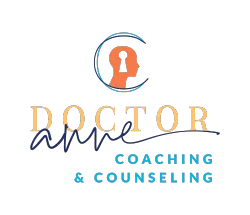
“I had never experienced a group class, but I am so glad I was open to it! It was an amazing opportunity that has helped me grow so much!” — P. Duran
What is group coaching with Dr Anne?
Group coaching is a safe space, lead by Dr Anne, to talk about what is going on in your life and apply the new perspectives learned in the Clarity Key I course. You have the opportunity to practice new ways of communicating and building healthy relationships in real life. Group learning can be one of the most powerful experiences of a lifetime. You get the benefit not only of your experience, but everyone in the group. It is a unique opportunity to offer and receive support, feedback, clarification, and other perspectives.
There are two types of groups.
- Psycho-educational
- Process group
Clarity Groups are a hybrid of the two.
Psycho-educational groups
Psycho-educational groups focus on a specific topic. They are designed to provide specific information about specific topics with experiential exercises to allow personal growth opportunities.
Generally, they are offered in weekend seminar formats or 1-2-hour class formats for several weeks.
Other examples include groups focused on:
- Anger management
- Domestic violence
- Sexual abuse recovery
- Addiction recovery
- Co-dependence
Process groups
Process groups explore the individual issues of group members. These groups are beneficial for people with self-image, social, or relationship difficulties. Generally, process groups meet weekly.
These groups provide a safe place to give and receive honest feedback and to offer and receive support.
Process groups help members learn how to deal with psychologically and emotionally intimate relationships in the real world.
For example, many people who have trust problems learn to develop appropriate psychological and emotional intimacy in the group, which then spills over into their 'outside' lives.
There are two types of process groups, closed-ended and open-ended. Each type of process group is based on the length of time the group lasts.
- Closed-ended groups are set up for a specific number of sessions.
- Open-ended groups are indefinite. In open-ended groups, members join an ongoing group and stay as long as they continue to benefit. When one member leaves or "graduates," another member is introduced.
The Clarity Group©
The Clarity Groups are a hybrid. They are educational groups formed to consolidate and integrate the new perspectives learned in the The Clarity I course in real life situations and they are open-ended. Each member stays until they have achieved their goals.
You are eligible to join a Clarity Group once you complete: Clarity Key 1© - Uncovering Hidden Beliefs.
In Clarity Groups© you practice using The Clarity Key Method© to resolve your issues.
